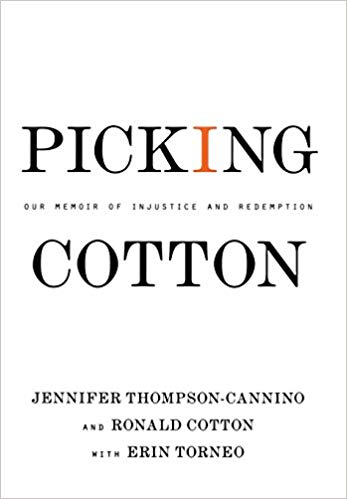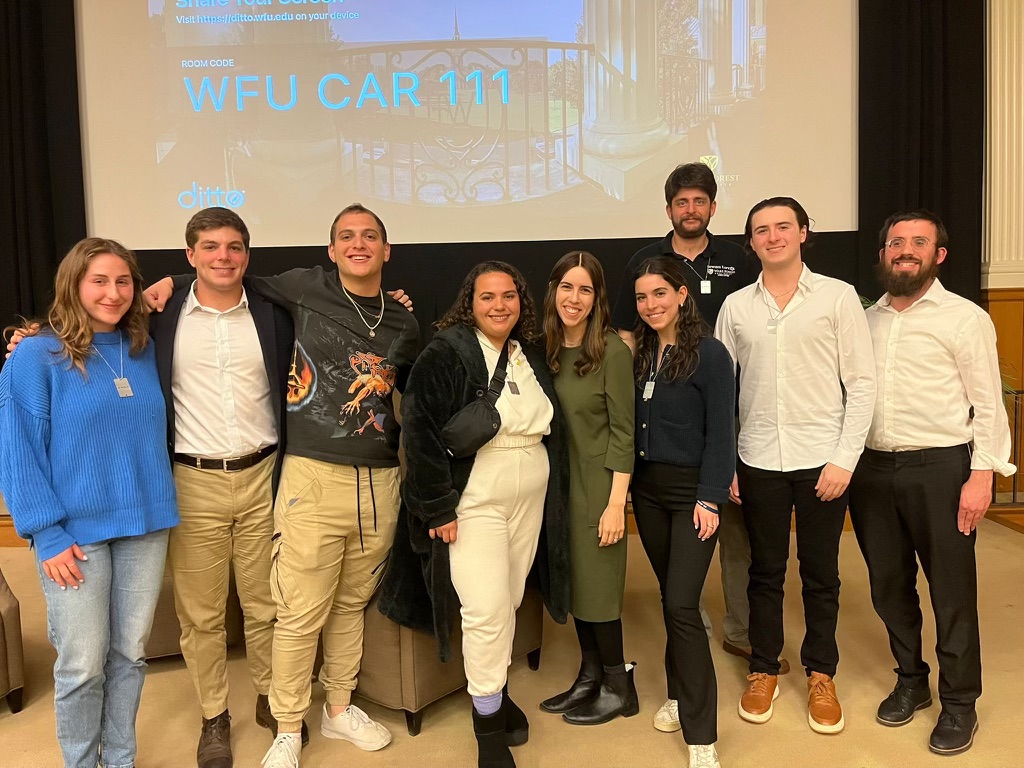Jennifer Thompson, a Winston-Salem native who co-authored the book Picking Cotton: Our Memoir of Injustice and Redemption with Ronald Cotton, spoke to a crowd in ZSR Library last Thursday, April 18, about her experiences with sexual assault and flaws in the criminal justice system.
Despite her history as an outspoken activist, making appearances on CBS, BookTV and at TEDxElonUniversity, this was her first time returning to Winston-Salem to speak about her story and her non-profit.
After surviving a violent sexual assault in 1984 while a student at Elon University, Thompson worked with police to identify Ronald Cotton as her attacker, which led to a conviction and a life prison sentence. However, 11 years later, a DNA test proved Cotton’s innocence and identified Bobby Poole as the true attacker. Thompson and Cotton became friends and co-wrote their book in order to start more conversations about the consequences of false convictions, the flaws in the criminal justice system and how to heal from the effects both have had on their lives and the lives of their loved ones.
Students in the Alexander Literary Organization (ALO), a club whose Wake Forest chapter was founded by senior Matt Schlosser, read the book Picking Cotton earlier this semester at the recommendation of their advisor, sociology professor Steven Gunkel. They were so moved by her story, they started talks about bringing her to campus and were able to partner with a variety of other organizations to make it happen.
Organizations which helped to fund her visit included the Women’s Center, the offices of the Provost and Dean, the Innocence and Justice Clinic, the sociology department, the Humanities Institute and the American Ethic Studies Program.
“We decided on [Picking Cotton] for our book club because we thought it really covered a wide range of issues including wrongful conviction, mistreatment of victims of crime and broader questions of empathy and forgiveness in general,” Schlosser said.
Before starting the book club, Schlosser and other students volunteered at a local prison leading book discussions, but after recent legislation made it more difficult for them to continue that work, they decided to focus on raising awareness about criminal justice and start a book club.
“Her story was impactful while I was reading her book, [but] hearing her voice while she tells it again added another dimension of understanding sexual assault, the downfalls of the judicial system and her journey in trying to heal and help others heal,” sophomore Kendall John said.
Despite the event taking place the Thursday evening before Good Friday, when classes were cancelled and many students left campus for the weekend, the event had an impressive turnout, nearly filling the room in ZSR.
“I was inspired to attend the event in the first place because of my passion and interest in criminal justice and law,” freshman Edna Ulysse said. “I was curious to see and hear [about] how her relationship [with Ronald] formed and lasted strong enough for them to write a book together. Also, its proximity to Winston-Salem was really intriguing since it’s so close to home.”
Thompson opened her talk by telling the audience the story behind how she became a sexual assault survivor and the conviction that followed. Today, she works as an advocate for the victims of false convictions and their families and noted how those convictions not only affect those serving time, but also their families, the victims of the initial crimes and the community in which some other person remains a guilty party, uncharged.
She launched her non-profit, Healing Justice, in 2015, and through that is able to coordinate retreats and healing activities for people affected by the flaws in the criminal justice system.
Following her talk on Thursday, a small group of students was able to meet with her for lunch on Friday afternoon, which many expressed was full of intimate conversations about criminal justice reform, the culture of sexual assault and the ethics of the death penalty.
“She emphasized that we can’t change rape culture without the leadership of men, a message that I think our campus could really benefit from,” Schlosser said. “I also just believe that her story, moving from trauma to trauma and still finding the capacity to forgive and empathize with others, to not become cynical from such tough circumstances and to use her experiences to help others was really powerful.”
Schlosser was also moved by Thompson’s leadership as exhibited through her activism efforts, her non-profit and in her conversations with students on Friday.
“We talk a lot on campus about leadership and character, and I believe that Jennifer’s brand of leadership through vulnerability, empathy, courage and kindness offers a model of leadership that I think a lot of people could benefit from today,” he said.
Picking Cotton was chosen earlier this year as the inspiration for a major motion picture. It will be produced by Sidney Kimmel Entertainment and be directed by Jessica Sanders, an Oscar-nominated and Sundance-winning docu-director.
“I hope that the recent optioning of the book Picking Cotton as a major motion picture will continue to shine light on these injustices as we work to heal as a community, whether that’s in Elon, Winston-Salem or the country as a whole,” Gunkel said. “Much of Jennifer’s talk and her intimate sit-down with our undergraduates suggests that we (instructors, advocates, victims) are developing an important space for those who have been harmed by traditional criminal justice.”













